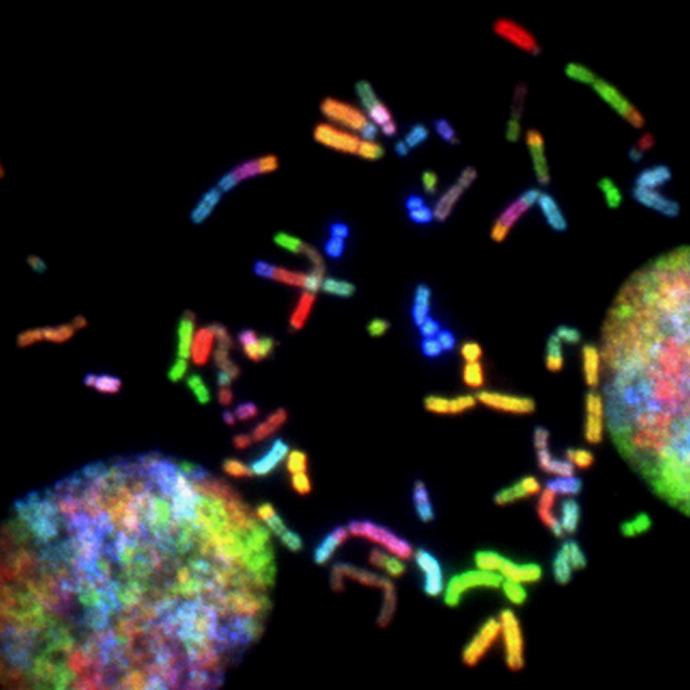Research
- Home >
- Technologies >
-
Unequal protein damage partitioning during asymmetric stem cell division determi ...

RESEARCH
Unequal protein damage partitioning during asymmetric stem cell division determines the differential lifespan of progeny

Toronto

Status: Submitted
- Cancer Stem Cells
- Stem Cell Division
- Aging of Stem Cells
- Cell Damage Segregation
- Cell Lifespan
- Stem Cell Research
Stem cells divide asymmetrically to self-renew and produce a differentiated cell, for example a skin cell. Although stem cells can survive throughout the life of the organism they are also susceptible to causes of aging, such as the build up of damaged proteins and lipids. When a stem cell ages it is less able to maintain an organ in a healthy state and this can lead to aging of the whole organism. In yeast and bacteria it has been shown that the older cell keeps damage during division to allow the new cell to have the maximum lifespan possible. This project aims at understanding how stem cells in adult organisms segregate damage during division and how this segregation of damage affects the lifespan of each cell. It is predicted that the cell that requires the longest lifespan to fulfill its function will be the cell that receives the least amount of damage during division. Stem cells from the fruit fly larval brain, midgut, and ovaries and from the mouse brain and small intestine will be compared. Tissue samples will be fixed and stained to observe the localization of damage during stem cell division. Live imaging will be completed on cells isolated from each tissue to observe how damage moves in the cell throughout the cell cycle. Next, different components of the cells cytoskeleton will be disrupted (using drugs and genetically modified flies and mice) to identify their role in moving damage during division. Finally, the mechanisms of damage localization will be disrupted to see how it affects the lifespan of the new stem cell and differentiated cell. It is essential to understand the basics of stem cell division and how stem cells cope with damage so that we can develop ways to reduce the effects of stem cell aging. This research can also be applied to cancer treatments, by disrupting cancer stem cells ability to prevent aging we can make them more sensitive to treatments.

To view more project details and submit an expression of interest
Explore more projects
Solutions to Business Technological Challenges
-
RESEARCH
01 Sep 2018
- Semi-passive treatment for mine drainage
- Subarctic climatic conditions
- Sulfate-reducing bacteria
- Metal removal from mine impacted water
- In-situ bioreactor for mine water treatment
- Sustainable and cost-effective mine water treatment
-
RESEARCH
08 Oct 2023
Bret Pearson
Toronto
- regenerative medicine
- Epigenetic Mechanisms
- Stem Cell Lineage Specification
- Molecular Biology
-
RESEARCH
08 Oct 2023
Michael Pryszlak, PhD
Toronto
- regenerative medicine
- stem cell biology
- Cancer Stem Cells
- Pluripotency
- Cancer Research